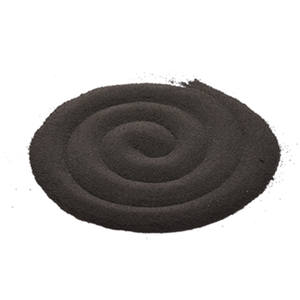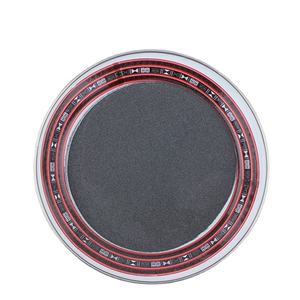Professional and high-quality metal alloys, ceramic products and concrete additives | RBOSCHCO
PRODUCT PARAMETERS
Description
| Potassium Cetyl Phosphate Properties | |
| Other Names | N/A |
| CAS No. | 19035-79-1 |
| Compound Formula | C16H33K2O4P |
| Molecular Weight | N/A |
| Appearance | NA |
| Melting Point | N/A |
| Boiling Point | N/A |
| Density | N/A |
| Solubility in H2O | N/A |
| Exact Mass | N/A |
| Potassium Cetyl Phosphate Health & Safety Information | |
| Signal Word | N/A |
| Hazard Statements | N/A |
| Hazard Codes | N/A |
| Risk Codes | N/A |
| Safety Statements | N/A |
| Transport Information | N/A |
(Potassium Cetyl Phosphate CAS 19035-79-1)
Overview of Potassium Cetyl Phosphate
Potassium Cetyl Phosphate is a surfactant and emulsifier derived from the reaction of cetyl alcohol with phosphorus acid and potassium hydroxide. This compound belongs to the class of alkyl phosphates and finds widespread applications in various industries due to its unique properties. With its surfactant characteristics, Potassium Cetyl Phosphate enhances formulations' wetting and spreading properties while its emulsifying properties stabilize emulsions and dispersions.
Characteristics of Potassium Cetyl Phosphate
Surfactant Properties: Potassium Cetyl Phosphate exhibits excellent surface-active properties, reducing surface tension and enhancing wetting and spreading in various formulations.
Emulsifying Agent: It acts as a powerful emulsifier, stabilizing emulsions by preventing the coalescence of oil and water droplets.
Compatibility: Potassium Cetyl Phosphate is compatible with various ingredients, allowing it to be used in various formulations without affecting their stability.
Biodegradability: This compound is biodegradable, making it an environmentally friendly choice for certain applications.
Low Toxicity: Potassium Cetyl Phosphate is generally recognized as a low-toxicity chemical, reducing health concerns associated with its use.
Application of Potassium Cetyl Phosphate
Personal Care Products: Potassium Cetyl Phosphate is widely used in shampoos, conditioners, and cleansers due to its surfactant and emulsifying properties.

Personal Care Products
Cosmetic Emulsions: It finds application in cosmetic emulsions, where it stabilizes the emulsion and enhances the spreadability and feel of the product.

Cosmetic Emulsions
Fire Retardants: Potassium Cetyl Phosphate is incorporated into fire retardant formulations to enhance their performance and stability.

Fire Retardants
Textile Processing: This compound is used in textile processing to improve the wettability of dyes and finishes, ensuring better color development and uniform coverage.

Textile Processing
Oilfield Chemicals: Potassium Cetyl Phosphate is employed in oilfield chemicals to aid in the extraction and transportation of oil, thanks to its surfactant and emulsifying properties.

Oilfield Chemicals

Company Profile
NANOTRUN(www.rboschco.com) is a trusted global chemical material supplier & manufacturer with over 12-year-experience in providing super high-quality chemicals and nanomaterials, including boride powder, nitride powder, graphite powder, sulfide powder, 3D printing powder, etc.The company has a professional technical department and Quality Supervision Department, a well-equipped laboratory, and equipped with advanced testing equipment and after-sales customer service center.If you are looking for high-quality Potassium Cetyl Phosphate, please feel free to contact us or click on the needed products to send an inquiry.
Payment Term
L/C, T/T, Western Union, Paypal, Credit Card etc.

Shipment Term
By sea, by air, by express, as customers request.
FAQ
Q1:
Is Potassium Cetyl Phosphate safe to use?
Re: Potassium Cetyl Phosphate is generally safe when handled according to the manufacturer's recommendations and with appropriate safety measures. However, it should be stored in a cool, dry place and avoid contact with eyes or ingestion.
Q2:
What are the benefits of Potassium Cetyl Phosphate in personal care products?
Re: Potassium Cetyl Phosphate offers several benefits in personal care products, including improved wetting and spreading properties, enhanced emulsification, and a smooth, creamy feel. It also helps to stabilize emulsions and improve product consistency.
Q3:
How does Potassium Cetyl Phosphate work as an emulsifier?
Re: Potassium Cetyl Phosphate works as an emulsifier by stabilizing emulsions by reducing the interfacial tension between oil and water droplets. It helps to prevent coalescence and maintains the stability of the emulsion, ensuring a uniform distribution of ingredients.
Q4:
Is Potassium Cetyl Phosphate suitable for use in food products?
Re: Potassium Cetyl Phosphate is not typically used in food products due to its chemical nature and potential safety concerns. However, it may find limited use in certain food processing applications, provided it is used within approved limits and by food safety regulations.
Q5:
What are the storage requirements for Potassium Cetyl Phosphate?
Re: Potassium Cetyl Phosphate must be saved in a great, dry place, shielded from direct sunshine and dampness. It must be kept in tightly sealed containers to avoid exposure to air and humidity, which could affect its stability and performance.








